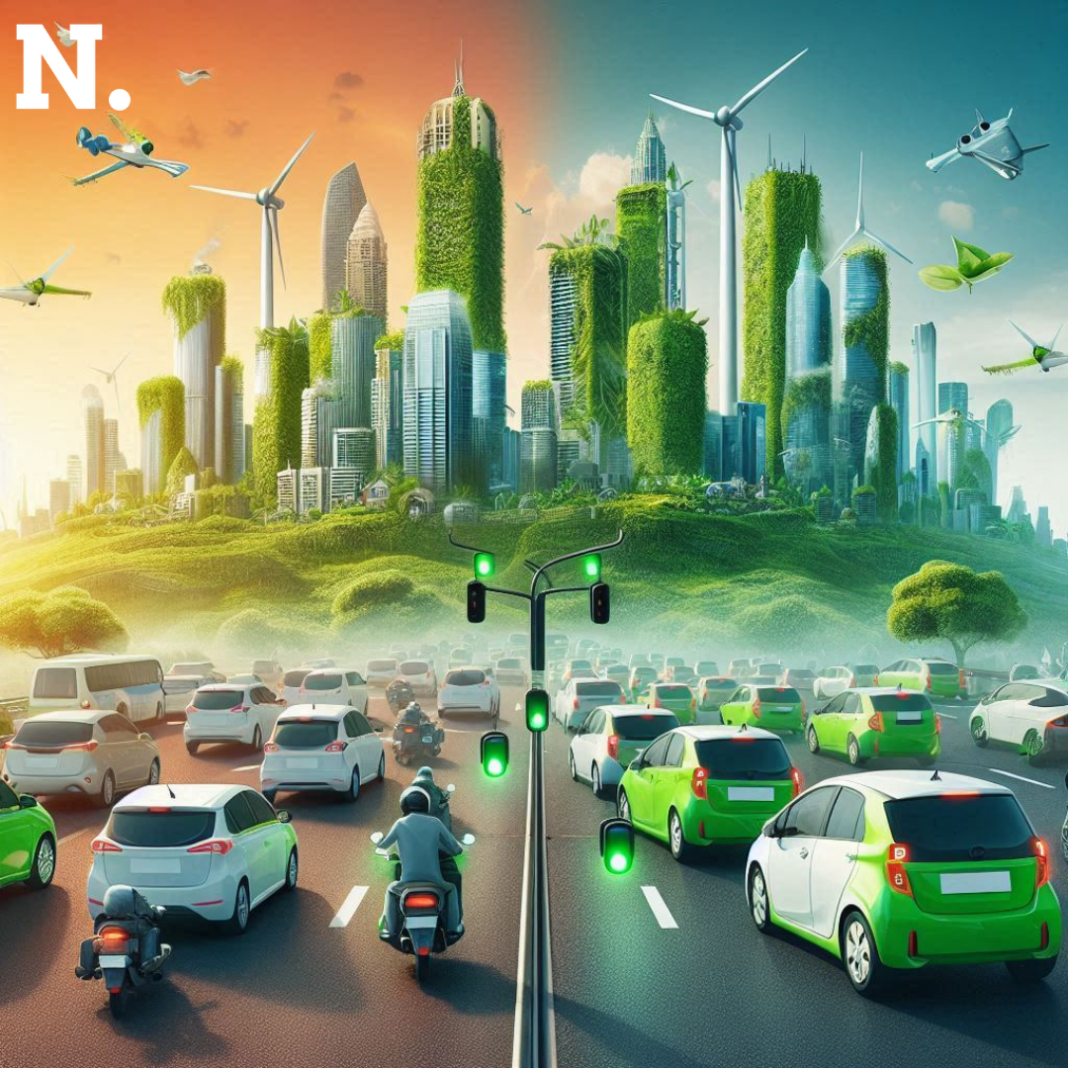The journey of India towards sustainable transport has not been without its eventful days, and the battle is far from over. As the country presses on, The Green Revolution. One debate that continues raking in consumer choices and market dynamics is EV vs Hybrid.
Green Revolution Fuels EV Growth in India
EVs have been adopted with great zeal in recent years across the country. According to JMK Research, in 2023, EVs formed about 6.5 percent of total vehicle sales across the country, a steep climb from what it was in 2021 at just about 1.75 percent. These statistics were hinting toward increasing consciousness and preference among Indian consumers toward greener modes of transportation.
A massive 56 percent of this growth in EV sales was from the two-wheeler segment and drove the market. The trend really underlined that Indians are increasingly eyeing greener and thus more sustainable ways to travel. Hybrid vehicles, however, outsold EVs with a difference—visibly during the first and last quarters of 2023—though staying quite competitive through the first months of 2024.
Green Revolution: Hybrids Lead the Way
The hybrid vehicle, powered by a conventional petrol or diesel engine with an electric motor, becomes attractive to many consumers. They deliver more power and achieve better fuel efficiency. There are two hybrid types: full hybrids that allow pure electric drive over short distances, and plug-in hybrids that can be charged ex-externally to give increased electric range.
A recent article on Economic Times, citing that in the January-November period, hybrid cars account for 12.6 per cent of total car sales in calendar 2023, much higher than EVs at 2.3 per cent, shows a stronger growth for hybrids. This normally gives a view of why this variant appeals the most to customers who want an optimum of better fuel efficiency and lower emissions.
Issues for EVs
Though EVs are considered very useful to the environment, there are still certain problems in them due to which they aren’t as easily adopted. The inherent problem could be the higher upfront cost. On average, an EV may be 30-40% more expensive than its diesel variant. For example, where the petrol variant of Tata Nexon sells for about ₹9 lakh, its EV variant’s starting price is ₹14.5 lakh.
This higher initial cost can, however, be offset by lower running costs. Running an EV is about ₹0.8 per km as compared to ₹5.6 per km for a petrol vehicle. Thus, they are more economical for people who cover considerable distances every day, say above 50 km.
Another major cause of concern is range anxiety. Most EVs go up to 300-400 km on a full charge, just enough for slithering within the city and some short intra-city hauls. Long-distance travel requires meticulous route planning with charging stations. The country has just around 12,000 public charging stations as of now and needs more than 10 lakh by 2030, says Mint. This infrastructure deficit feeds range anxiety among prospective EV buyers.
Global Trends and Market Dynamics
The choice of hybrid cars is not an Indian trend in isolation. Across the globe, hybrids have found an increasing following. A Deloitte research shows interest in hybrid cars among Indian customers has increased from 20% to 24% in one year. During this period, interest in electric vehicles rose marginally from 8% to 10%.
Despite higher taxes on hybrids in India, face a GST rate of 43%. The sales figures, between September and November 2023, stood at 24,062 vs 21,445 EVs that enjoy a lower tax rate of 5%.
This pattern is developing not only in India but also across other geographies. Hybrid vehicle demand in Europe was at its highest since 2021 at the beginning of 2024, an 18% increase over last year but a 50% spike over 2022. In the U.S., hybrids sell at fivefold that amount over EVs in 2024. Manufacturers are shifting production back to hybrids. Plug-in hybrid sales in China were up 80% in 2023 as EV sales were up 23 percent.
Balancing Act Between Hybrids and EVs
Growing hybrid preference, indicating consumers are looking for pragmatic, immediate solutions to Blaze’s notion of sustainable transport. On the grounds of reduced running costs and zero tailpipe emission, EVs can turn their advantage into a winning one; however, the higher purchase price and inadequate infrastructure for charging bring about a big turn-off.
While offering fewer models and having to pay higher taxes, hybrids still present the great balance of superior fuel efficiency with the capability of running on conventional fuel for longer trips. This fact makes it attractive enough for most consumers.
Ultimately, the push will remain toward going completely electric, but until technology. And infrastructure develop, hybrids might remain the chosen preference of many. Such will be the emerging market, driven by consumer choice, defining the future of transportation not only in India. But globally as well, where hybrids and EVs are playing an extremely vital role in this green revolution.





